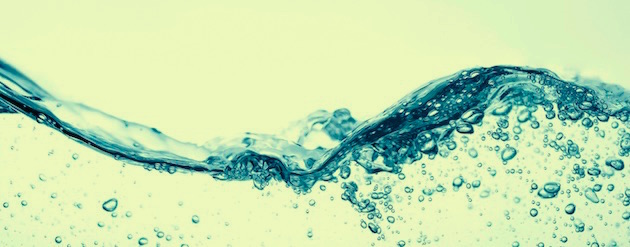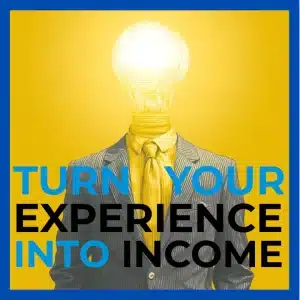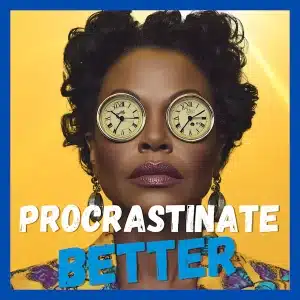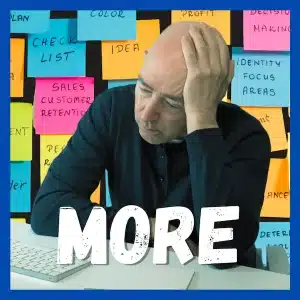Previously we talked about the problem of content saturation and managing the amount of information you consume. And, here we share seven suggestions for how to overcome content saturation when you’re the audience…
1 You can’t win! Don’t try.
The clever advertising campaign of the lotto companies suggest that you have to be in it to win it. And, a similar theme applies on the sporting field, if you’re not playing to win then why bother? The reality of content saturation is that we can’t win – there will always be more books that we want to read than we can consume, more email, more Facebook friends, more You Tube videos, more, more, more…
The trick about winning this battle is the way you define ‘winning’. If winning against your email is a zero inbox then you can only win temporarily. As soon as you clear it and finish jumping for joy, up pops another one.
This game of defence based on keeping out the enemy is mentally broken. You will always be chasing your tail! Instead, consider a game of offence where you are rewarded for scoring a goal. For instance, your goal might be to read one book each week. Once you’ve completed this task, you can tick it off. Alternatively, measure your activity: Facebook for only 30 minutes. The key to winning with this strategy is to acknowledge that more is not better. Remember, the whole point is to limit the time you spend consuming content.
TIP: Define what winning the content consumption game is for you. State it in the positive as either a result or an activity. For instance, read one book a week or 30 minutes Facebook time per day.
2 Digital Detox
You may have heard of the liver detox diet. Essentially, you cut coffee, alcohol and a few others things from your diet to give your liver a break from all the toxins you’ve been consuming. Meditation retreats work in the same way – time out from our busy lives. And, more recently we have the digital detox.
The basic premise behind a detox is to take a break. Like a good joke, it’s a release from the tensions you’ve been enduring. This lets you rest and recover. And, ideally, this time-out might just be the chance for you to stop, reflect and possibly consider a new path for going forward.
Mmm… I survived coffee, TV, alcohol, being in a hurry, Facebook (insert your vice here) and maybe I don’t need it in the future. Or, perhaps I don’t need it as much as I thought. I think I’ll cut back…
TIP: The power of a digital detox is to stop, reflect and potentially reset your clock. Start with a single day or perhaps a weekend. I dare you: leave your smartphone home today.
[Tweet “Do you need a digital detox or an information diet? #contentsaturation”]
3 Your Information Diet
The downside of a digital detox is that it’s not designed to fix the problem – it’s just a temporary break. Instead, you might want to consider your information consumption as a diet. Instead of fuel for the body, it’s fuel for your brain. The obvious question is:
What are you feeding your mind?
And, this question is the starting point for creating your information diet: an audit. Here are four steps to creating your information audit:
- Begin by recording what you consume and how much you time you spend on this. Include the task, the source, the time of day and the duration. Record your results for a week and review your results.
- Then create your information goals. Consider: What do you want to learn to get ahead? What do you need to know to keep up to date? And, whom do you want to connect with?
- Next, create a Content Consumption Plan. Decide what you’ll consume, how often and from whom. Remember to include a range of aspects such as: relaxation, career education and connecting with friends and colleagues.
- And, finally, schedule some time or add this to your to-do list to ensure you stick to your plan.
TIP: Design your own information diet of what content you consume, how often and from which sources by completing an audit.
[Tweet “Four steps to create your personal content consumption plan #calm”]
4 Project Your Future
One of the biggest challenges of content saturation is the grab for our attention. As canny marketers learn increasingly more attractive techniques for catching our eye, we are faced with a big choice: What to focus on?
Previously, when there were only a few mass media channels, the choice was effectively made for us. If you wanted to watch TV at 7:30 there were only a couple of shows to select from. This is way easier than our current situation of unlimited choice.
One of the ways to channel your focus is to create a project. This is a short-term set of actions that result in a particular outcome. For instance, if you were to write a book, then you could shape your content consumption around what you need to learn to complete your book. Anything that doesn’t fit this can be safely ignored until your project is completed.
TIP: Create some boundaries for your attention by defining a project. Within the project define what content you will consume to reach your desired goal.
5 Systems
One of the reasons that we are experiencing content saturation is that it’s so easy to automate and systematize content creation and sharing. For instance, you can use Hootsuite, Buffer and a host of other apps to schedule posts to Twitter and the like. You might write ten tweets and then recycle and reuse them consistently for a week blasting them out to whoever might be listening.
The good news is that you can also use systems and automation to manage your consumption and screen out unwanted content. Here are a couple of ways you might do this:
- I receive between 200-400 spam emails every day. If I had to sort through them one by one it would soak up several hours of my valuable time every week. The good news is that Google Gmail does a fabulous job of filtering them for me. You can also filter other content into your preferred buckets of consumption.
- One of the ways I used to waste my time was in that spare five minutes between tasks. This was when I fluffed around on Facebook or read the news for the tenth time that day. Now, I have a simple plan: I download ebooks to read and stick them in a file called ‘To Read’. Now when I have five minutes I read the things I really want to.
- Use some ‘read it later’ apps – Mashable reviews five of them here
- Eight Time-Saving Apps also from Mashable
- 15 Time-Management Apps and tools form Lifehack
TIP: Use technology to manage your content – ask your tech-savvy friends what apps and tools they use.
[Tweet “7 powerful tips to help you overcome content saturation #toomuchinfo”]
6 Constant Content Cull
When was the last time you cut your toenails, fingernails or your hair? I’ll bet you do it every 4-6 weeks. It’s called hygiene. And, this might be a good frame for your content consumption. To keep the weeds from growing and overtaking the flowers you want to grow, consider a regular cull.
For your email this might be to review your unopened, unread emails. Simply, ask yourself: Do I still want to receive this? If the answer is ‘no’ then ‘unsubscribe’.
TIP: Schedule a Content Cull every 4-6 weeks. When will your next cull be?
7 Create Great Habits
There are two parts to the Content Saturation equation: the unlimited amount of the content that’s being produced AND the limited amount of time we have to consume it. So, to overcome Content Saturation manage your time effectively by being productive. And, one of the best ways to do this is to create regular habits that make it quick and easy to achieve your outcomes.
- 12 Power Habits to Make Your Life Easier we blogged about previously
- 15 habits to start your day from Lifehack
TIP: Create habits around your content consumption to save brain space and vital life energy.
COMMENT: How do you manage your content consumption? What tips would you add to this list?
Next – the 3rd Article in this series: How to Overcome Content Saturation when you’re the one creating the content. In other words, how to engage your audience when they’re already dripping wet with content.




